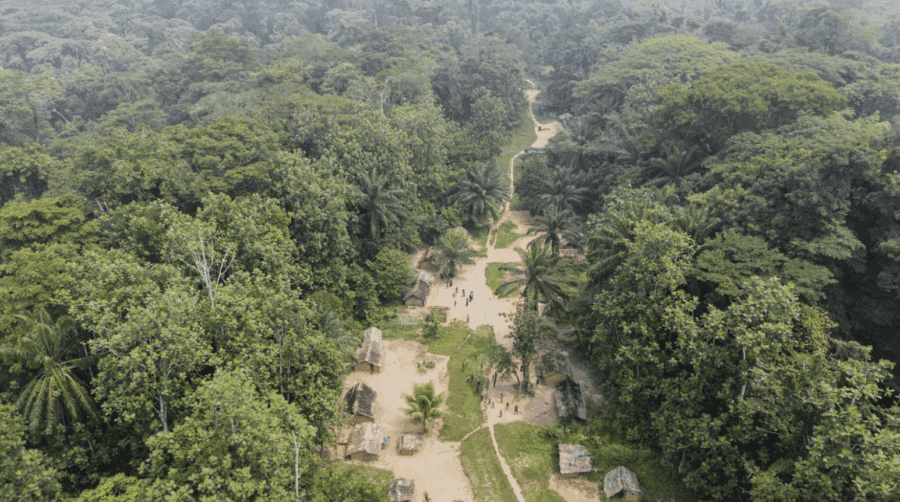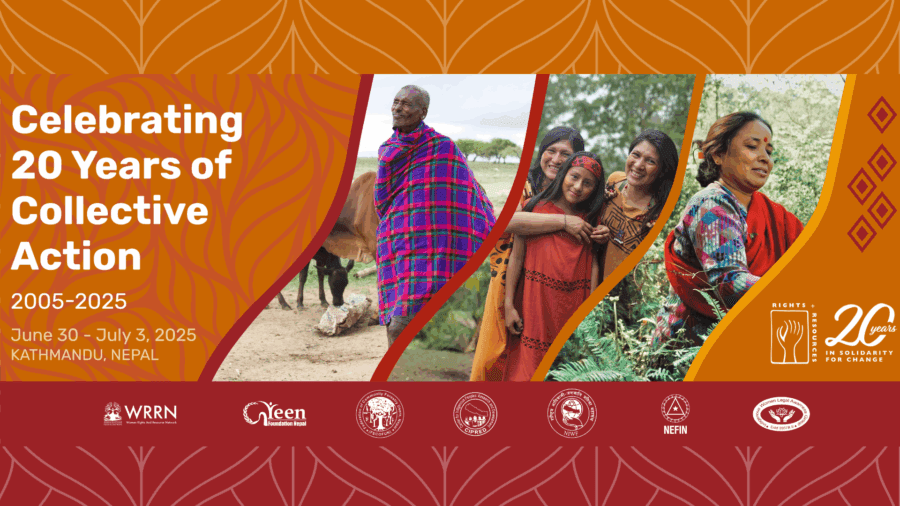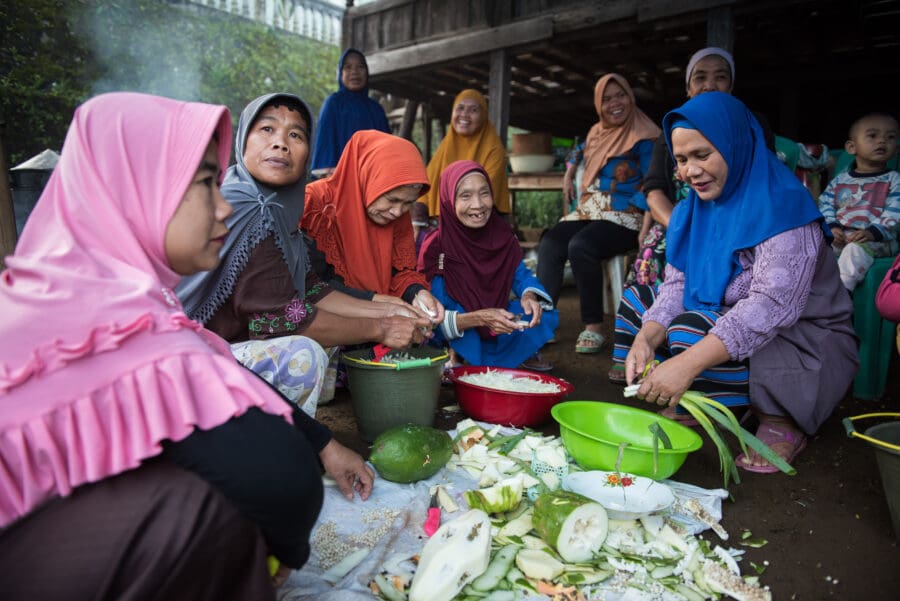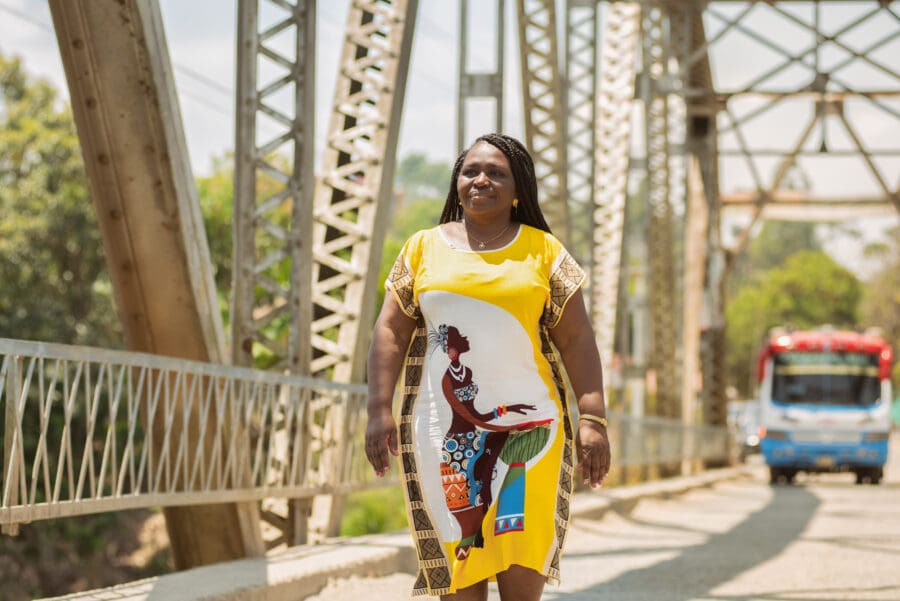From July 8th to July 10th, Brasilia held an event called the Pre-COP of the Traditional Peoples and Communities of Brazil . This was a national preparatory meeting for COP30, the next UN climate change conference that will be held in Belém, Brazil, in November 2025.
This meeting brought together more than 300 community leaders, representatives of traditional community networks and movements, youth, and women from diverse traditional communities in Brazil—such as and extractives groups and Quilombolas (rural Afro-descendant People) who live around and depend on the forest and rivers.
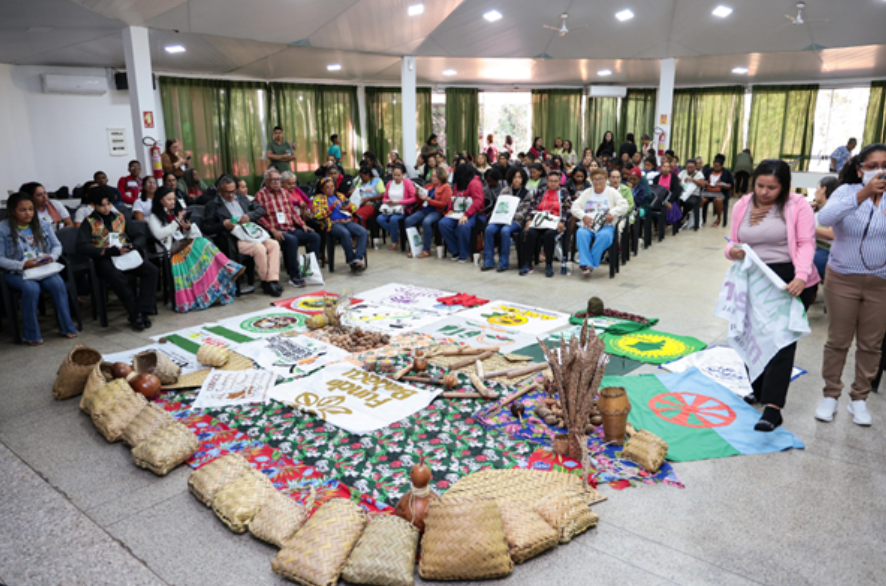
The event was organized by the Traditional Peoples and Communities’ Network of Brazil and the Interstate Movement of Babaçu Coconut Breakers (MIQCB), with support from partner institutions, civil society organizations, and government agency representatives.
The meeting’s goal was to strengthen the political unity and collective voices of Traditional Peoples and Communities (PCTs) in international negotiations, to discuss the concrete impacts of climate change on traditional territories and ways of life, to generate participants’ own proposals for COP30 based on local realities and traditional knowledge, to articulate strategies to influence the formulation of national public policies and international commitments (such as NDCs), and to prepare a political charter addressed to the federal government that expresses the main demands of the group.
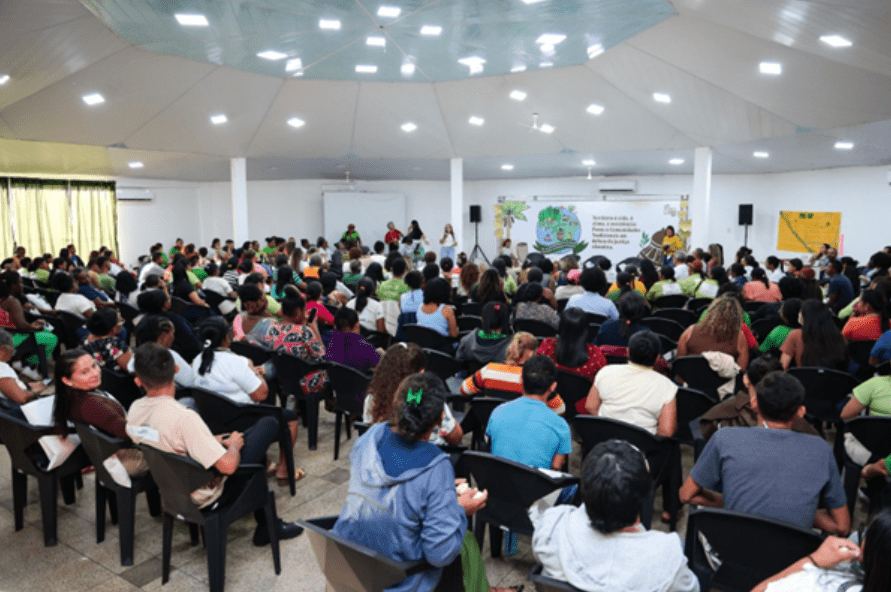
During the three days of activities in Brazil, the participants from different regions of the country met in thematic tables, plenary sessions, and spaces for intergenerational dialogue. The discussions were organized around four main topics: territories and collective rights; climate finance; socio-biodiversity as an adaptation strategy; and fair energy transition.
Each group shared testimonies, experiences of territorial self-defense (such as self-demarcations), cases of conflicts with extractive activities, and proposals for the strengthening of community governance. Discussions were also held on environmental racism, the criminalization of environmental defenders, and the urgency of protecting women and youth.
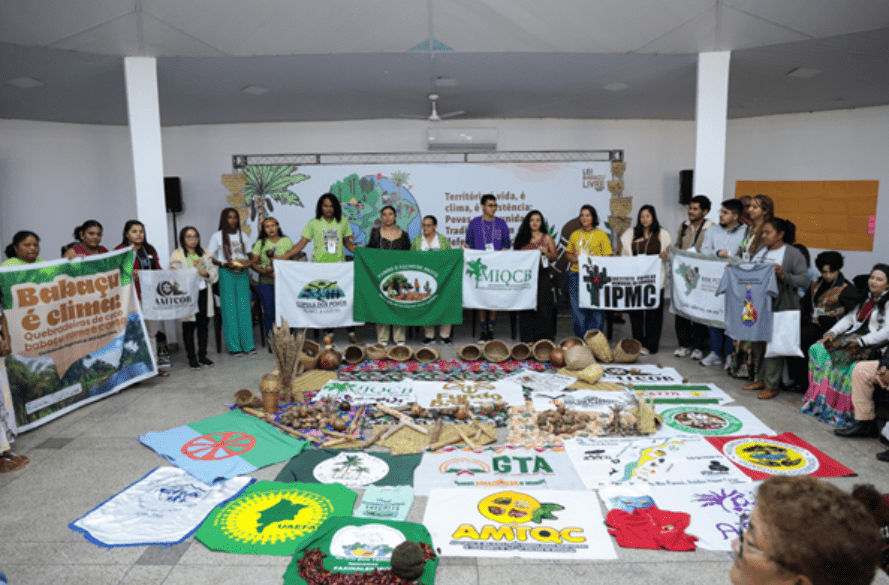
Among the debates that stood out was the denouncing of the advancement of predatory extractivism, such as mining, hydroelectric plants, and agribusiness, as it’s one of the greatest threats to the territories and ways of life of the PCTs. The need to establish direct, flexible and accessible financing mechanisms to avoid bureaucratic intermediaries was also reiterated, and the importance of articulating international solidarity networks to make visible the contributions of PCTs to the protection of biodiversity and climate stability was discussed. The central role of women, especially the babassu coconut breakers, as guardians of traditional knowledge and promoters of economies based on socio-biodiversity was also highlighted.
The main political outcome of the event was the approval of the Charter of the Traditional Peoples and Communities of Brazil, a document that brings together commitments, clear numerical targets, and proposals for the next two years. Among its key points is the requirement of collective land titling, with the goal of having 27 million hectares of land recognized by 2026 for the National Institute for Settlement and Agrarian Reform, Chico Mendes Institute for the Conservation of Biodiversity, and the Office of Federal Assets. The charter also includes a commitment to ensuring a minimum of R$225 million (approximately US$40 million) per year until 2026 for land titling, which would directly benefit 75,000 families in Brazil.
It also proposes setting aside at least 40% of climate resources for communities and funds directly managed by traditional peoples and communities, including quantitative titling targets in national climate commitments (NDCs), and ensuring the direct participation of representatives of the PCTs in the official negotiating area (blue zone) of COP30, with a seat on the UN Local Communities and Indigenous Peoples Platform.

